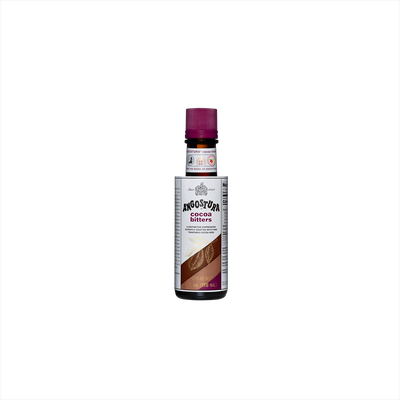Nut & Seed Bitters
What is Nut & Seed Bitters?
Nut & Seed Bitters represent a distinctive category of Bitters that draws its complex flavor profile from carefully selected nuts and seeds like walnuts, pecans, almonds, sesame, or sunflower seeds. These botanical extracts create a rich, earthy foundation with warm, toasted notes that add depth and texture to cocktails. What defines this style is the way these ingredients contribute both subtle nutty sweetness and natural oils that provide a creamy mouthfeel, making them perfect for whiskey-based drinks and dessert cocktails.
Learn More About Nut & Seed Bitters
What makes Nut & Seed Bitters unique?
Nut and seed bitters bring a distinctive richness and earthiness that sets them apart from traditional aromatic or citrus bitters, offering deep, roasted notes that can add weight and complexity to cocktails. Unlike fruit-forward bitters that brighten drinks or spice bitters that add heat, nut and seed varieties contribute a satisfying, almost savory quality that works particularly well in whiskey and aged spirit cocktails. Their ability to bridge the gap between sweet and bitter while adding textural depth makes them especially valuable for bartenders looking to create more sophisticated, layered flavor profiles.
How is Nut & Seed Bitters made?
Nut and seed bitters start with a careful selection of raw materials like toasted almonds, walnuts, sunflower seeds, and pumpkin seeds, which get macerated in high-proof neutral spirits for several weeks to extract their oils and flavor compounds. The mixture is then strained and often combined with complementary botanicals like vanilla, cinnamon, or citrus peel before being aged to allow the flavors to marry and mellow. Some producers lightly toast their nuts and seeds beforehand to deepen the flavors, while others prefer the cleaner taste that comes from using them raw.
How do you drink Nut & Seed Bitters?
Nut & Seed Bitters work best as a cocktail ingredient rather than something you'd sip neat—these concentrated flavor bombs pack too much intensity for solo drinking. Drop a few dashes into whiskey-based cocktails like Old Fashioneds or Manhattans, where their nutty richness complements aged spirits beautifully. They're also fantastic in fall and winter drinks, adding warmth to seasonal cocktails with apple brandy, bourbon, or dark rum when you want that cozy, fireside feeling.
How do I choose a good Nut & Seed Bitters?
Start by considering the dominant nut or seed flavor you want—almond bitters bring sweet, marzipan-like notes that work beautifully in whiskey sours and amaretto cocktails, while walnut bitters add earthy richness to aged spirits like bourbon and rye. Match the intensity of your bitters to your base spirit: delicate gin-based drinks call for lighter touches like pecan or hazelnut bitters, while robust rye whiskey can handle the bold, roasted flavors of black walnut or sesame seed varieties. Consider the other ingredients in your cocktail too—chocolate or coffee elements pair wonderfully with deeper nut bitters, while citrus-forward drinks benefit from the bright complexity that pistachio or pine nut bitters can provide.
Nutritional Information
Typical Calorie Range per Ounce: 8-15 calories
Typical Carbohydrate Range per Ounce: 1-3 grams
Typical Sugar Range per Ounce: 0-2 grams
Typically Gluten Free: No
Nut and seed bitters often contain grain-based alcohol or may be processed in facilities that handle gluten-containing ingredients. Some producers use gluten-containing grains during the infusion process. Always check the detailed product information and contact the manufacturer directly to confirm gluten-free status if you have celiac disease or gluten sensitivity.
Scrolled this far? Your reward? Nut & Seed Bitters Trivia!
- Black walnut bitters were once considered a legitimate medical treatment for intestinal parasites in 19th-century America, and bartenders would actually prescribe specific doses mixed with whiskey to customers complaining of stomach ailments. The tannins in black walnut hulls do have antiparasitic properties, making those old-timey bartenders accidental healthcare providers.
- Pecan bitters contain natural compounds called ellagitannins that can actually make your taste buds more sensitive to sweetness for up to 30 minutes after consumption. This is why a few dashes in an Old Fashioned can make the drink taste sweeter without adding any sugar, and why cocktail nerds obsess over the "pecan effect" in brown spirit drinks.
- Almond bitters aren't made from almonds at all – they're typically crafted from apricot pits, cherry pits, or peach stones, which contain the same benzaldehyde compound that gives almonds their distinctive flavor. Real almond extract would actually taste too mild for bitters production, so we get that intense "almond" punch from stone fruit seeds instead.
- Sesame seed bitters were a secret weapon in Japanese bartending long before they became trendy in American cocktail bars. Tokyo bartenders in the 1980s would toast sesame seeds until they were almost burnt, then infuse them in shochu to create an umami-rich bitter that paired brilliantly with aged spirits. The technique only made it to the States in the last decade.
- Sunflower seed bitters change color dramatically based on pH levels – they'll turn bright pink in acidic cocktails like those with citrus, but stay golden brown in alkaline drinks. This color-changing property comes from anthocyanins in the seed hulls, the same compounds that make red cabbage change colors in chemistry experiments. It's like having a mood ring in your cocktail.
Higher-proof spirits can be intense. Mix carefully, taste thoughtfully, and enjoy responsibly.
Gift message (optional)

